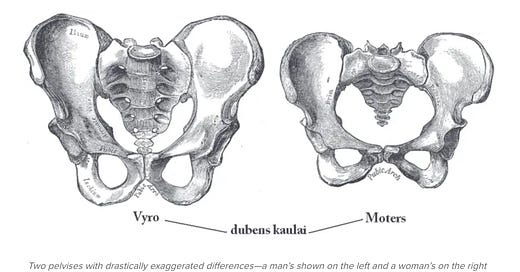Can archeologists really tell your birth sex from your bones?
While scientists are often able to determine the birth sex of a person from their bones, it’s far from an exact science. Ancient skeletons are often incomplete, and looking at one of the two bones that have the largest difference between people assigned male and people assigned female at birth is only about 70% accurate. Scientists sometimes find that somebody who lived their life as one gender had the chromosomes of another gender, something they might not even have been aware of in their lifetime, or record a skeleton as indeterminate, a process that began in the 1970s after one researcher noticed that 12% more skeletons were being identified as male than female, indicating that some were incorrectly labeled as men.
Because of this imprecision, archeologists take into account the manner in which somebody was buried in order to form conclusions about how gender functioned in societies that have long since disappeared. A person studying this time period would likely know that trans people lived openly at least in some places. Trans women have lower bone mass than cis men even before hormone therapy, which could be identified. Scientists would even more easily be able to identify if a skeleton belonged to a person who’d received facial feminization surgery, helping to confirm that they likely lived as a gender other than their birth sex.
They wouldn’t look at that information and say “oh, this person was actually a man” because that wouldn’t tell them much about how that person lived their life, and archeologists are usually highly sophisticated researchers with more complicated interests.
But even if they were not, if someone is allowed to begin their medical transition before puberty, their skeleton will develop in a way that’s consistent with their lived gender. Which is exactly the type of thing that the people yammering about digging up skeletons are trying to stop. They don’t want trans people living unremarkable lives as themselves. They want us humiliated for centuries after we are gone.



